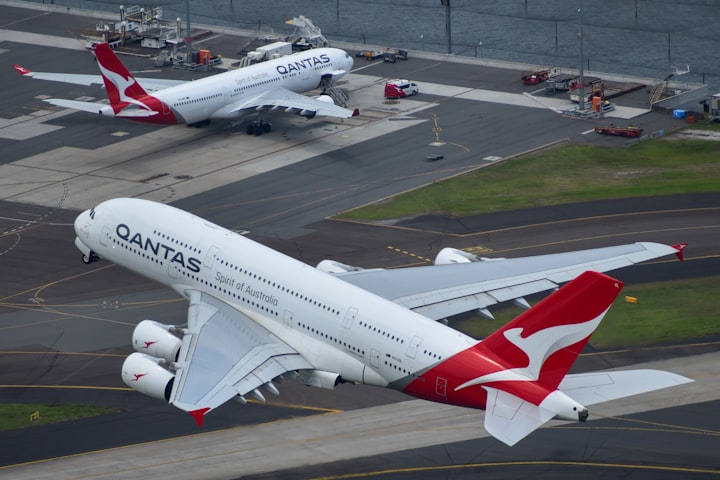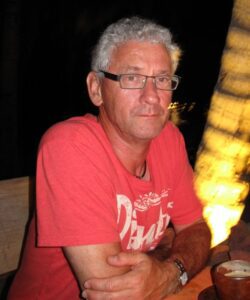How a CEO can destroy a reputation
The Spirit of Australia
If you’ve seen ‘Rain Man’ (and if not, you should), you’ll remember Raymond (Dustin Hoffman) is crazy about Qantas. It’s the only airline he’ll fly because of its perfect safety record.
Qantas earned trust in Australia as a favorite because of its strong safety record. Since 2014, it has been first in most years. Last year, it fell to second place and is on a downward spiral.
The late 1990s and early 2000s were good years for Qantas. Most of the Australian public loved it. I was travelling a lot between Australia and the US then, and for me and many other business travelers, Qantas was the only option to take.
They became a top airline in 2013 by teaming up with Emirates. The combined carriers provided 98 flights each week to Dubai. From Dubai, you can reach all major cities in Europe.
In 2018, they started the first non-stop flight from Perth, Australia, to London. This connected the two continents directly by air for the first time. The next year, they finished the longest commercial flight from New York to Sydney. I must have traveled that route at least fifty times over a ten-year period.
A company’s behavior strongly influences corporate reputation. A company’s bond with its stakeholders - employees, customers, shareholders, clients, and the public - depends on honesty and transparency.
The company survived COVID-19, when it grounded its entire fleet at one point. It appeared stronger after the pandemic. But one thing changed: it lost the trust of the Australian public. It became just another company that people don’t trust.
How did it fail?
Simple, at the hands of its then CEO, Mr. Alan Joyce. As CEO, he must take the blame for several issues that plagued the company.
These included accusations of defrauding customers and price gouging. He also wrongly fired staff while executives made millions. Additionally, he improperly stood down employees over OH&S concerns.
He influenced government policy, which had adverse effects on consumers. He devalued the frequent flyer program and cut many jobs. Staff claim these changes have lowered performance and hurt company morale.
For years, Qantas called itself “the spirit of Australia.” However, its reputation has deteriorated so much that it almost no longer deserves this title. The reputational damage has hurt profits and shaken shareholder confidence, as shown by the lower share price.
What a shame, and so easily avoided if not for the greed and power of one man.
The Straw That Broke the Kangaroo’s Back
The final blows to Qantas’ reputation at the hands of the Board and CEO came with COVID. During COVID, the world was on edge. Australia, in particular, because of its geographical dependence on air travel. Qantas dug a hole and jumped in.
In March 2020, in response to the COVID-19 epidemic, it suspended 60% of flights. It also put two-thirds of its workforce on compulsory leave. It suspended all international flights and mothballed more than 150 of its fleet.
Three months later, it announced that 6,000 employees would lose their jobs. In November, officials warned of 2,000 more job losses.
These actions were not unusual. Many companies had to lay off staff and stop strategic operations. However, these businesses did not receive the $1.3 billion in taxpayer funds that Qantas did during the pandemic.
Mr. Joyce’s mismanagement caused a parliamentary inquiry into the airline sector. This inquiry examined Qantas’s actions and a legal case from Australia’s competition watchdog.
The ACCC acted against the company for misleading ticket ads. They advertised over 8,000 tickets, some of which they had already canceled as long as 48 days ago. The ACCC said Qantas did not tell ticket holders about their canceled flight.
The High Court also ruled that it illegally sacked workers and fined the company $100 million.
The company’s response to these events harmed the “flying kangaroo’s” reputation.
Joyce complicated matters by letting the Prime Minister’s son into the Chairman’s Lounge. This increased doubts about Joyce’s ties to the government.
The Chairman’s Lounge is accessible only via invitation from the CEO. Qantas offers important politicians, celebrities, media personnel, and top company executives memberships. It also grants memberships to those who manage major corporate travel accounts.
In 2023, the brand plunged from ranking highest in the country to ranking 41st out of 100 companies. The flying kangaroo had long COVID, bad!

Where’s the man now?
Amid the controversy, Mr. Joyce opted to retire early. He won’t give up his payout of over $21 million. So, he hurriedly left the country for personal matters.
Vanessa Hudson, the former Group Chief Financial Officer, is now the CEO of Qantas. She is the first woman to hold this position. The Chairman of Qantas announced his resignation too. He followed the former CEO’s lead during the uproar of the senate inquiry.
Alan Joyce was always controversial. He usually avoided conflicts with shareholders because of the company’s good reputation among the Australian public.
In 2011, he suggested a plan to place less experienced pilots in co-pilot seats. This came even after a parliamentary inquiry found the practice was not suitable. That year, industrial unrest caused the entire mainland fleet to be grounded.
This had a big effect on how the public viewed the situation. News of a 71% raise in his base salary and a grant of 1.7 million Qantas shares made things worse. This was part of a long-term incentive plan.
In 2016–2017, Qantas cut 500 full-time jobs to save $2 billion. Meanwhile, the CEO’s salary doubled to $24 million.
In 2014, Qantas revealed a $2.4 billion loss and froze staff wage levels for 18 months. However, Qantas executives and senior management saw their pay rise by $60 million each year, making the already-troubled workforce feel even worse.
They had nowhere to share their frustration, so they took it out on their once-loyal customers.
Joyce received a $14 million bonus for damaging the Qantas brand, in addition to the $125 million he made during his time at Qantas. However, he lost $9.26 million from his executive bonus due to mistakes.
These mistakes led to the airline’s big reputational and customer service problems, but I doubt this will hurt him in the long run.
He lives with his husband in a luxury apartment in one of Sydney’s best areas, with stunning views of Sydney Harbor.
Lessons Learned
It is a great example of how ethics, or the lack of ethics, can destroy a company. The moral of the Flying Kangaroo story:
– Don’t lie and deceive your greatest asset - your customers.
– Don’t play power games with the support of politicians, who will turn around and fry quicker than they can fry an egg.
– Ensure your CEO, the guardian of your reputation, isn’t rewarded for being unethical or deceitful. Stakeholders don’t take kindly to that.
Welcome to the Dirty Dozen revisited, Mr. Joyce. You are a piece of work and a worthy inductee as number 5 into the Dirty Dozen revisited.
Till next time,
Calvin

